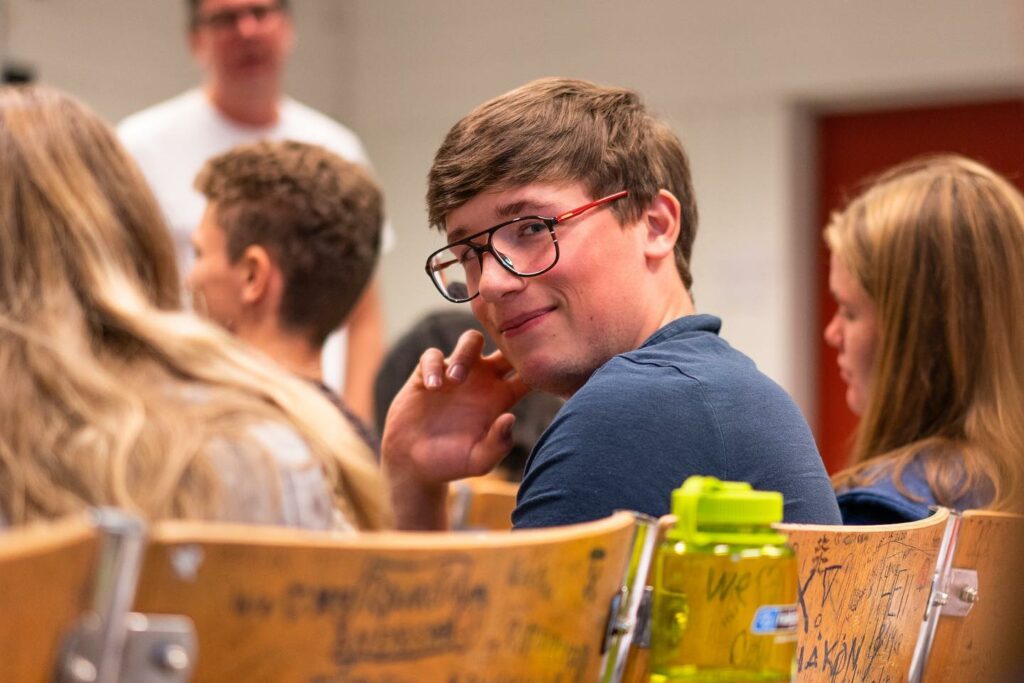Folk high school pedagogy
In folk high schools, the teaching is based on three clear pedagogical principles that promote good learning and personal growth. These are that the teaching is conversation-based, experience-based and participant-driven.
Conversation-based folk high school pedagogy
The pedagogical approach of folk high schools is based on “free conversation”. Through conversations between students and teachers, we gradually arrive at insights and realisations.
This conversation-based approach to teaching and learning makes folk high school pedagogy part of a long tradition that began all the way back in ancient Greece with Socrates and his Socratic dialogue. All folk high school teachers have a bit Socrates in them – they ask questions and are curious about what their students think might be the truth. Together with their students, they explore the possibilities and search for answers.
In a folk high school, teachers don’t necessarily have all the answers. The task of the teachers is to direct the dialogue in a direction that may lead to interesting discoveries.
Experience-based folk high school pedagogy
In folk high school, we believe that you have to do things before you can fully understand them. Getting physically acquainted with something creates a completely different starting point for learning than purely theoretical study. We foster situations that give us experiences and can form the basis for new knowledge and learning.
Part of the reason why folk high schools go on study trips is our belief in experience-based pedagogy. On study trips, we have adventures and gain experiences that we couldn’t get any other way.
Experiences that are supported by reflection become knowledge. When students reflect on what they experience and do, the conversation-based pedagogical approach meets the experience-based one. Together, they help us to learn about both ourselves and the world around us.
Participation-based folk high school pedagogy
Folk high school students are adults, and they must be treated as mature, responsible individuals. Therefore, it goes without saying that they should be involved in influencing the teaching.
In folk high school, the teaching is based on the wishes and needs of the individual student. The overall experience and knowledge of the group serve as a starting point for the work of the class.
Folk high schools have no curriculum or exams, but that does not mean that we can do whatever we want.
Our curriculum is determined by the students who attend the school, and that curriculum is both large and interesting. Life is our students’ only exam, and it’s the most difficult and comprehensive test any of us will ever face.

Photo: Sagavoll folkehøgskole